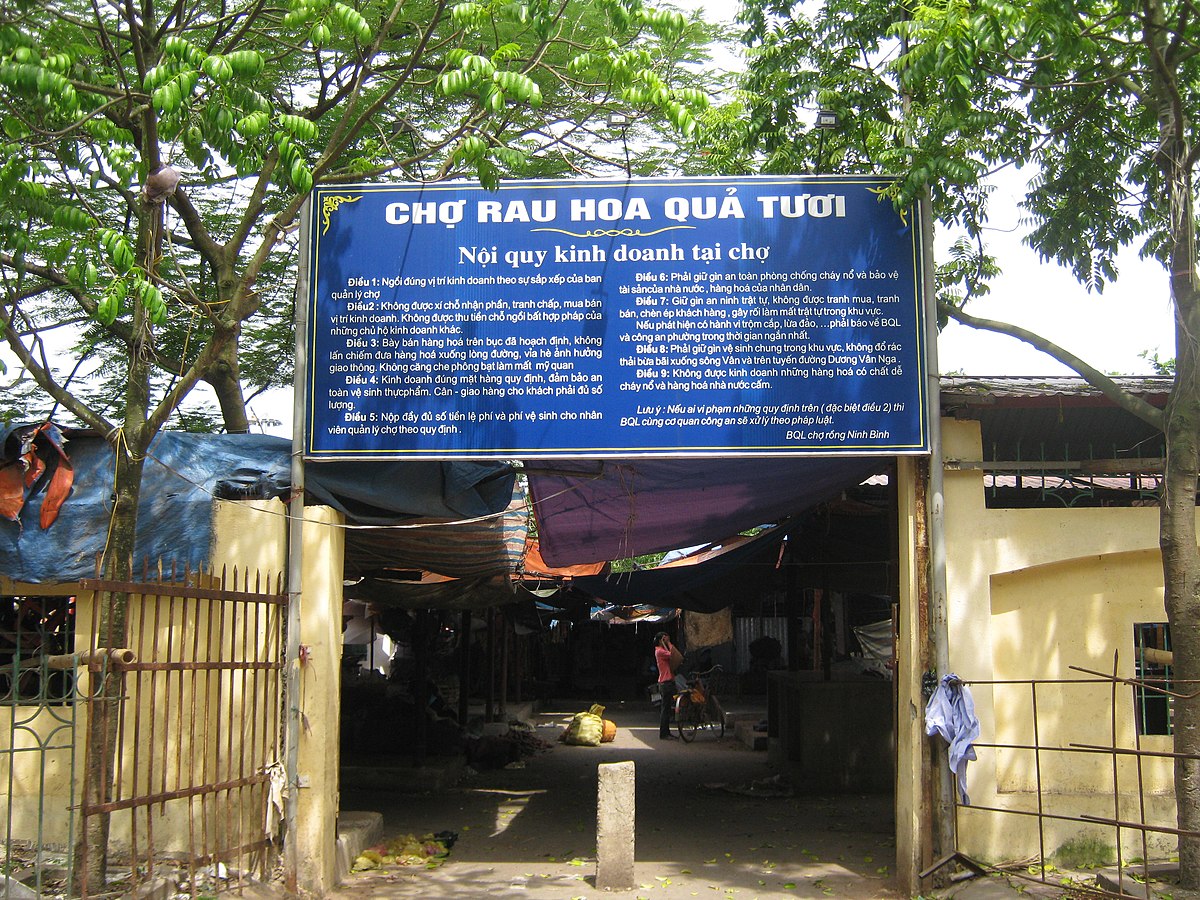Regulations on Market Rules effective in Vietnam from August 1, 2024
Recently, Hanoi issued a new Decree on the development and management of markets.

Regulations on Market Rules effective in Vietnam from August 1, 2024 (Image from the internet)
On June 5, 2024, Hanoi issued Decree 60/2024/ND-CP concerning the development and management of markets.
Regulations on Market Rules effective in Vietnam from August 1, 2024
Based on Article 10 of Decree 60/2024/ND-CP, market rules must include the following main contents:
- Opening hours;
- Rights and obligations of traders doing business at the market;
- Regulations on goods and services traded at the market;
- Regulations on people coming to transact, buy, sell, visit, or perform public duties at the market;
- Regulations for market management officers and staff;
- Fire safety, disaster prevention;
- Security and order at the market;
- Environmental sanitation and food safety;
- Civilized commercial behavior, code of conduct;
- Requirements for organizing and participating in cultural and social activities at the market;
- Regulations on handling violations at the market;
- Other regulations.
Market rules must be publicly, clearly posted in easily visible, observable locations within the market and must be disseminated to traders doing business at the market.
Organizations and individuals participating in the sales and exchange of goods and services in the market, as well as related organizations and individuals, must comply with the provisions of the law and the Market Rules.
Violations of the Market Rules are handled by the market management organization within their authority.
- The provincial People's Committee issues a standardized Market Rules template to ensure uniformity in the creation and application of market rules across all markets in the area.
Regulations on Market Classification in Vietnam effective from August 1, 2024
(1) Classification of markets by business method:
- Wholesale market is a market with the functional usage specified in Clause 3, Article 3 of Decree 60/2024/ND-CP and meets the following criteria:
Scale (area): The minimum land area of the market foundation is 10,000 m², not including the area allocated for the compound, pathways, parking lots, and other auxiliary works.
Location: Connected to various transportation types, facilitating the circulation of goods. Construction components include:
Essential facilities: parking lots, water supply and drainage systems, wastewater treatment plants, waste and scrap collection points, sanitation areas, and warehouses, goods concentration areas;
Technical requirements: fire prevention and fighting, food safety, and environmental protection, climate change response according to legal regulations;
Main area components: business areas sorted by goods categories (including wholesale and retail areas); office headquarters; inspection, control, quarantine (goods of animal and plant origin for export, import), quality tracing, and management; sorting and preliminary processing, processing, packaging, and packing areas; goods handling warehouses; support services for essential services and loading-unloading areas for trucks and containers.
For wholesale markets already invested, constructed, and operating before the effective date of this Decree, they can continue operating according to the investment project.
- Civil market is a market with the purpose and functional usage specified in Clause 4, Article 3 of Decree 60/2024/ND-CP.
(2) Classification of markets by scale:
- Grade 1 Market:
A market with over 400 business points, built solidly according to the plan;
The area of the market premises is suitable for the market’s activity scale; organizing basic activities like vehicle keeping, public sanitation, and other activities.
- Grade 2 Market:
A market with 200 to 400 business points, built solidly or semi-solidly according to the plan;
The area of the market premises is suitable for the market’s activity scale; organizing basic activities like vehicle keeping, public sanitation, and other activities.
- Grade 3 Market:
A market with fewer than 200 business points or has not yet been built solidly or semi-solidly;
The area of the market premises is suitable for the market’s activity scale; organizing minimal activities like public sanitation.
(3) Classification of markets by funding source:
- Market invested from the state budget:
The investment, management, and business activities at the market are carried out in accordance with Chapters II and III of Decree 60/2024/ND-CP and other relevant legal provisions;
The management, utilization, and exploitation of market infrastructure assets funded and managed by the state are conducted following the provisions of Chapter IV of Decree 60/2024/ND-CP.
- Market invested from non-state budget sources (including other legal sources according to the law):
The investment, management, and business activities at the market are conducted following Chapters II and III of Decree 60/2024/ND-CP and other relevant legal provisions.
More details can be found in Decree 60/2024/ND-CP which is effective in Vietnam from August 1, 2024.
- Number of deputy directors of departments in Vietnam in accordance with Decree 45/2025/ND-CP
- Cases ineligible for pardon in Vietnam in 2025
- Decree 50/2025 amending Decree 151/2017 on the management of public assets in Vietnam
- Circular 07/2025 amending Circular 02/2022 on the Law on Environmental Protection in Vietnam
- Adjustment to the organizational structure of the Ministry of Health of Vietnam: Certain agencies are no longer listed in the organizational structure
- Vietnam aims to welcome 22-23 million international tourists in Vietnam in 2025
-

- Number of deputy directors of departments in Vietnam ...
- 15:04, 05/03/2025
-

- Cases ineligible for pardon in Vietnam in 2025
- 14:43, 05/03/2025
-

- Decree 50/2025 amending Decree 151/2017 on the ...
- 12:00, 05/03/2025
-

- Circular 07/2025 amending Circular 02/2022 on ...
- 11:30, 05/03/2025
-

- Adjustment to the organizational structure of ...
- 10:34, 05/03/2025
-

- Notable new policies of Vietnam effective as of ...
- 16:26, 11/04/2025
-
.Medium.png)
- Notable documents of Vietnam in the previous week ...
- 16:21, 11/04/2025
-
.Medium.png)
- Notable documents of Vietnam in the previous week ...
- 16:11, 02/04/2025
-
.Medium.png)
- Notable new policies of Vietnam to be effective ...
- 16:04, 02/04/2025
-
.Medium.png)
- Notable new policies of Vietnam effective from ...
- 14:51, 21/03/2025

 Article table of contents
Article table of contents
